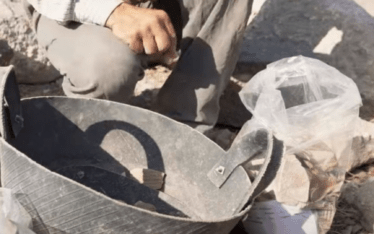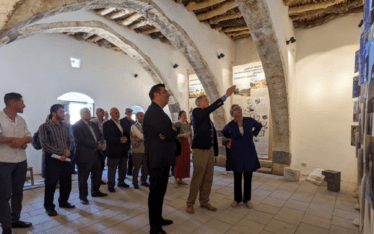
Coastal Erosion and Flooding on Cultural Heritage Sites in Scotland | Interview with Dr. Mairi Davies
- Home
- Coastal Erosion and Flooding on Cultural Heritage Sites in Scotland | Interview with Dr. Mairi Davies


In the ArcHerNet interview Dr. Mairi Davies (Historic Environment Scotland) talkes about her presentation “A collaborative approach to addressing coastal erosion and flooding on cultural heritage sites in Scotland” that will be held at the postponed conference “Ground Check – Cultural Heritage and Climate Change“.
Historic Environment Scotland (HES) is fulfilling its leadership role in climate action through partnership working. This includes grants to support citizen science such as SCHARP, pioneering projects such as Dynamic Coast: Scotland’s Coastal Change Assessment and Edinburgh Adapts and a collaborative research project analysing risk to the HES Estate.

Climate change has a huge range of impacts on Scotland’s cultural heritage, from our traditional buildings to shipwrecks and prehistoric monuments. Together with partners, we’ve summarised these in a Guide to Climate Change Impacts on the Historic Environment, which you can download at Historicenvironment.scot. Coastal erosion and flooding causes damage to and loss of historic structures and archaeological deposits, and exposure to water and salt can accelerate decay.
We care for and protect our historic environment by law and through national and local policy and guidance. For many years, Historic Environment Scotland has financially supported the work of Scotland’s Coastal Heritage at Risk (SCHARP), who work with communities to record and monitor their eroding heritage. HES also looks after 336 Historic

Scotland properties in state care, many of which are on the coast and exposed to rising sea levels and changing weather patterns. We’ve been working with Dynamic Coast to better understand coastal change and vulnerability and this is informing our ongoing management of these sites. We’ve also worked with international partners and local people to understand the vulnerability of the Heart of Neolithic Orkney World Heritage site to the changing climate. The recent Learning From Loss project brought together experts with communities to consider issues around prioritisation and loss. Wemyss Caves is a great example of a community coming together to celebrate and protect its coastal heritage.
We’ve just launched our Climate Action Plan, which sets out our work for the next five years. We want to increase resilience by mainstreaming climate change risk assessment into our policy and operations. We’ll be developing a Climate Change Adaptation Plan for HES and further developing our understanding of vulnerability and natural hazards across the properties we care for. We want to act as an exemplar, promote good practice and work with partners on adaptation in the historic environment.
Thank you Dr. Davies!
This interview was conducted via email.
For more information about the conference „Ground Check – Cultural Heritage and Climate Change“ visit our website.
Read More:
Archaeological Heritage Network is made possible by many national and international partners. The Federal Foreign Office and the Gerda Henkel Foundation supports the network.


